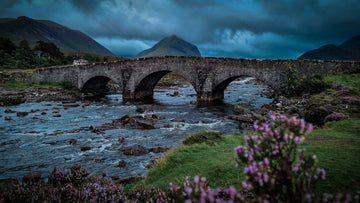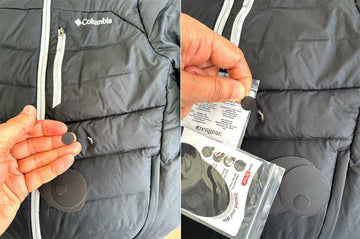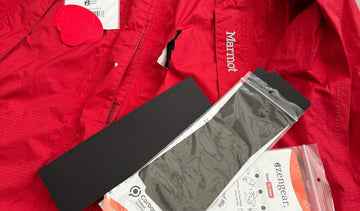Wild camping in the United Kingdom is a truly remarkable and immersive outdoor experience. With its diverse landscapes, rich history, and stunning natural beauty, the UK offers a plethora of opportunities for adventurous souls to escape the hustle and bustle of city life and embrace the serenity of the great outdoors. In this comprehensive guide, we will explore the essence of wild camping in the UK, from the legalities and ethics to the best locations, essential gear, safety tips, and more. So, grab your tent, put on your hiking boots, and let's embark on an unforgettable adventure!
What is Wild Camping?
Wild camping is a simple yet rewarding concept. It involves camping in the great outdoors, away from designated campsites and facilities. This form of camping allows you to immerse yourself in nature, unplug from the digital world, and escape the stresses of modern life. Wild camping offers a sense of freedom and connection with the natural world that is hard to replicate in a crowded campsite.
The Legalities of Wild Camping in the UK
One of the first things to consider when planning a wild camping adventure in the UK is the legal aspect. In Scotland, wild camping is legally permitted under the Land Reform (Scotland) Act 2003, which gives everyone the right to access most land and water, provided you act responsibly and follow the Scottish Outdoor Access Code. This generous legal framework allows you to camp on unenclosed land, so long as you leave no trace and respect the environment.
In contrast, the rest of the UK (England, Wales, and Northern Ireland) has stricter regulations. Wild camping is not legally allowed in these nations. However, there are some exceptions in specific areas and on private land with the landowner's permission. It's essential to check the local rules and regulations for each region, as they can vary.
Ethical Considerations
Even in places where wild camping is permitted, there are ethical guidelines to follow. Some key considerations include:
Leave No Trace: This principle should be your golden rule when wild camping. Leave the environment exactly as you found it, without a trace of your presence.
Respect Wildlife: Keep a safe distance from animals and birds and avoid disturbing their habitats.
Camp Responsibly: Camp at least 30 meters away from roads and bodies of water, and don't camp in large groups to minimize your impact on the environment.
Respect the Local Community: If you're camping near a community, be respectful and considerate of local residents and their property.
No Open Fires: To protect the environment and reduce the risk of wildfires, do not light open fires. Use a camping stove for cooking instead.
Choosing the Right Location
Selecting the perfect location for your wild camping adventure is essential. In the UK, you're spoilt for choice when it comes to stunning natural landscapes. Consider factors such as accessibility, terrain, and the type of experience you want. From the rugged peaks of the Scottish Highlands to the tranquil lakes of the Lake District, there's a wide variety of landscapes to explore. Additionally, some areas may require permits or landowner permission, so always do your research.
Essential Gear for Wild Camping
The gear you choose can make or break your wild camping experience. Here's a list of essential items:
Tent: Opt for a lightweight and compact tent suitable for the UK's ever-changing weather.
Sleeping Bag: Ensure it's appropriate for the season and temperature of your chosen location.
Backpack: A comfortable, spacious backpack is crucial for carrying your gear.
Navigation Tools: Maps, a compass, or a GPS device are essential for finding your way.
Clothing: Dress in layers and be prepared for changing weather conditions.
Cooking Equipment: A camping stove, cookware, and food supplies are necessary for meal preparation.
First Aid Kit: Accidents can happen, so always have a basic first aid kit on hand.
Water Filtration: A water filter or purification tablets are essential for sourcing safe drinking water in the wild.
Headlamp/Flashlight: Vital for navigating in the dark.
Multi-tool/Knife: Useful for various tasks in the outdoors.
Emergency Communication: Carry a loud whistle, a charged mobile phone and, if necessary, a satellite communication device for emergencies.
Safety First: Wild Camping Tips
Safety should be your top priority when wild camping in the UK:
Tell Someone Your Plans: Always let someone know where you're going and when you plan to return.
Weather Awareness: Stay updated on the weather forecast for your chosen location and be prepared for sudden changes.
Wildlife Awareness: Learn about the local wildlife and how to handle encounters with animals.
Water Safety: Be cautious around bodies of water and follow safety guidelines for swimming or crossing streams.
Health and Hygiene: Maintain proper hygiene to prevent illnesses and infections in the wilderness.
Leave No Trace
Leaving no trace is a fundamental principle of wild camping. It means that when you leave your campsite, there should be no evidence that you were ever there. This involves practices like burying human waste, packing out all trash, and not damaging vegetation. Respecting this principle ensures that these beautiful places remain unspoiled for future generations.
Wild Camping in the Four Nations of the UK
While wild camping is largely synonymous across the UK, each nation offers a unique experience:
Scotland: As mentioned earlier, Scotland's Land Reform Act makes it one of the best places for wild camping. The remote landscapes of the Highlands are a favorite among campers.
England: In England, wild camping is generally not permitted, but some areas, like Dartmoor and the Lake District, have more relaxed policies.
Wales: Wales also follows the same regulations as England, but certain areas, like the Brecon Beacons, may be more welcoming to wild campers.
Northern Ireland: Wild camping is not legally allowed in Northern Ireland, so campers must seek alternative accommodations or private landowner permission.
Alternative Accommodations
If the idea of wild camping regulations and ethical considerations seems daunting, or if you prefer more creature comforts, there are alternative accommodations available in the UK. These include campgrounds, bothies, hostels, and even glamping sites that provide a middle ground between wild camping and a traditional hotel experience.
Conclusion: Embrace the Adventure
Wild camping in the UK is an extraordinary way to connect with nature, challenge yourself, and create unforgettable memories. While it may come with legal and ethical considerations, the rewards are well worth the effort. With the right gear, knowledge, and respect for the environment, you can embark on a wild camping adventure that will leave you with a deeper appreciation for the natural world and a longing to return to the great outdoors. So, don't hesitate—embrace the adventure and start planning your next wild camping trip in the United Kingdom today!





